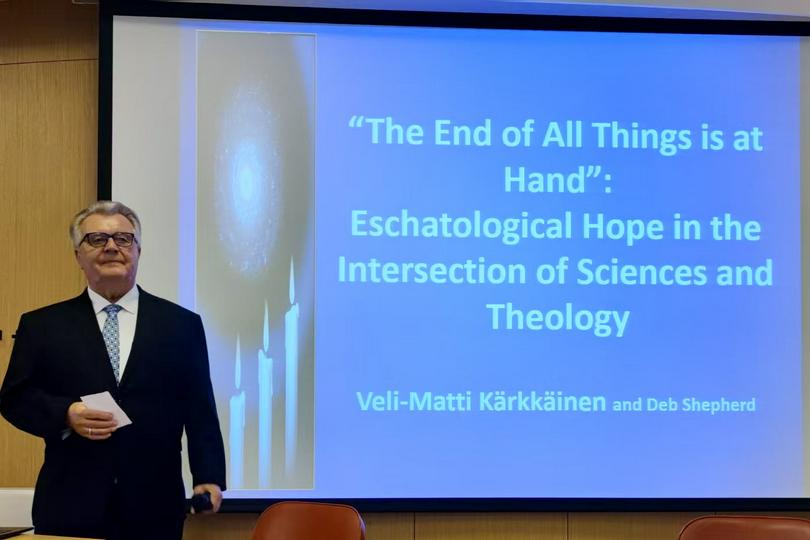On October 14, 2025, Prof. Veli-Matti Kärkkäinen gave a lecture titled "The End of All Things is at Hand: Eschatological Hope in the Intersection of Sciences and Theology" at Chung Chi College, The Chinese University of Hong Kong.
Prof. Kärkkäinen is a professor of Systematic Theology at Fuller Theological Seminary and Docent of Ecumenics at the University of Helsinki. The lecture was moderated by Rev. Prof. Tobias Brandner, Associate Director (External Affairs) of the Divinity School of Chung Chi College, CUHK.
First, Prof. Kärkkäinen outlined the traditional scope of Christian eschatology, which he noted was often limited to "the four last things": death, resurrection, heaven, and hell. He characterized this approach as frequently individualistic, otherworldly, and disconnected from contemporary life. In its place, he proposed a more comprehensive framework for modern eschatology, suggesting it should encompass three interconnected dimensions: a hope that is both personal and communal; a concern that extends beyond human destiny to include cosmic destiny; and a dynamic relationship where hope for the future informs present life.
The lecture then addressed the scientific perspective on the end of the universe. Prof. Kärkkäinen explained that current cosmological projections, based on Einstein's theories of relativity and quantum theory, suggest several potential outcomes. The most likely scenario is a "Big Freeze," where the universe expands and cools until all energy dissipates. He stated that from a purely scientific standpoint, all projections lead to an eventual end for the physical universe over a timescale of billions or trillions of years.
Moreover, Prof. Kärkkäinen contrasted this scientific forecast with the Christian theological vision, which he described as envisioning a transformative, divinely initiated event—a "new heaven and new earth." He identified the resurrection of Christ as the foundation for this theological hope, presenting it as a precedent for the ultimate renewal of all creation. This renewal involves both discontinuity with the current world and continuity through its transformation.
Finally, Prof. Kärkkäinen concluded the lecture by reiterating the need for theologians to not only learn from scientists but also to pose theological and philosophical questions to them, particularly when scientific interpretations extend into metaphysical claims.












